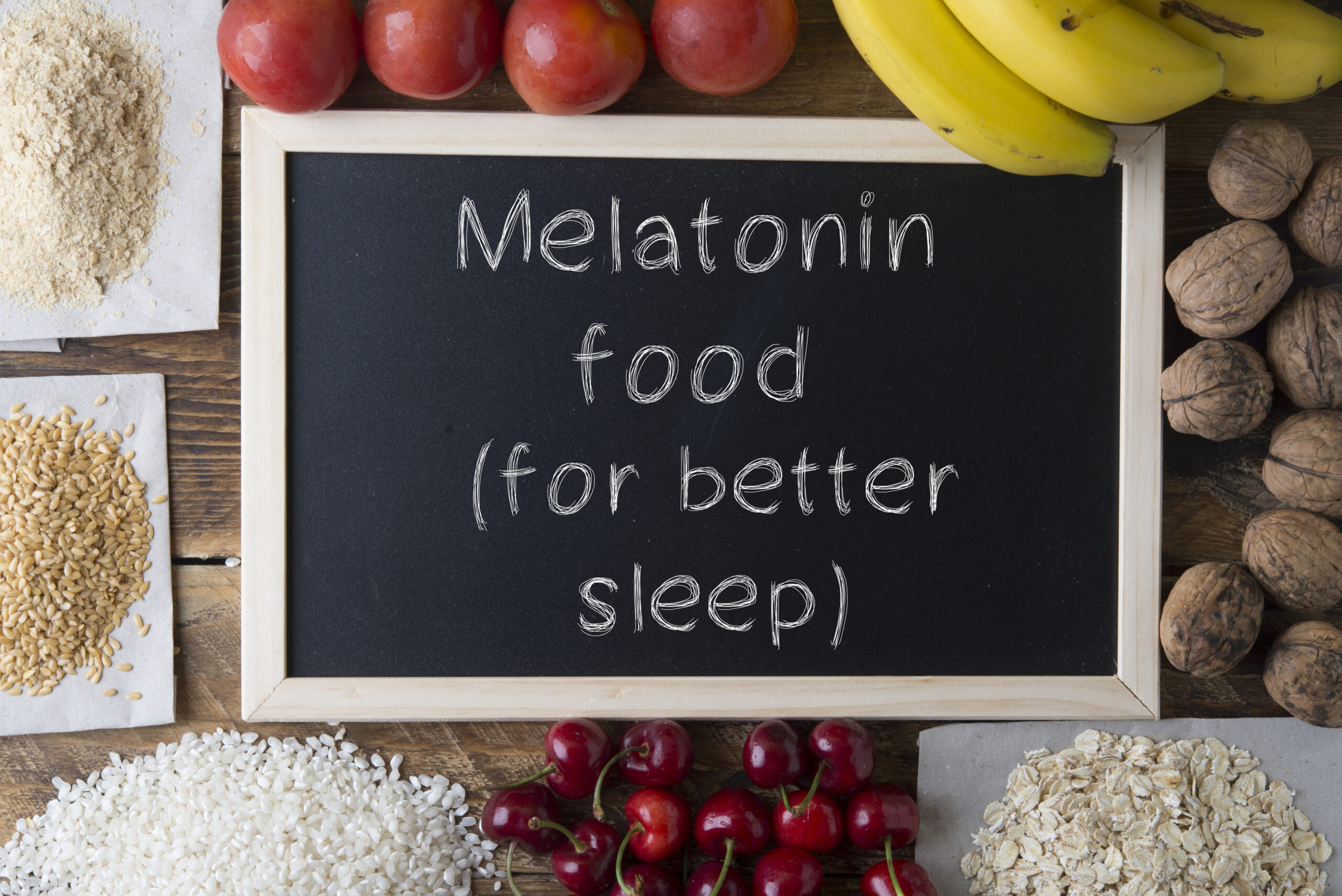Table of Contents

Natural solutions to boost melatonin could help millions of Americans struggling with sleep problems without resorting to supplements that may carry risks.
At a Glance
- Exposure to natural light during the day and avoiding bright light (especially blue light) 90 minutes before bed can significantly boost natural melatonin production
- Melatonin-rich foods like cherries, bananas, walnuts and tryptophan sources such as turkey and eggs can support your body's melatonin production
- Maintaining a consistent sleep schedule helps train your body to produce melatonin at appropriate times
- Relaxation practices including meditation, breathwork and warm baths can reduce stress and support natural melatonin production
- Poor sleep affects over 60 million Americans and increases risk of depression, obesity, diabetes and heart disease
Understanding Melatonin's Role in Sleep
Melatonin is a hormone naturally produced by your body that plays a crucial role in regulating sleep. Rather than directly causing sleep, it creates a state of quiet wakefulness that helps transition your body from alertness to rest. Your pineal gland typically begins releasing melatonin about two hours before bedtime as daylight fades, signaling to your brain that it's time to prepare for sleep. This process is integral to maintaining a healthy circadian rhythm, your internal 24-hour clock that governs numerous physiological processes beyond just sleep.
When melatonin production is disrupted—often by factors like artificial light exposure, irregular sleep schedules, or stress—sleep quality typically suffers. While supplements are widely available, they come with potential side effects and aren't regulated by the FDA. Fortunately, several natural approaches can effectively boost your body's own melatonin production and improve sleep quality without supplements.
Light Management: Your Most Powerful Tool
The relationship between light exposure and melatonin production forms the foundation of natural sleep regulation. Morning sunlight exposure serves a dual purpose: it helps suppress melatonin to promote alertness during the day while simultaneously setting your internal clock to release melatonin appropriately later. Aim for 30-60 minutes of outdoor morning light, even on cloudy days, as natural daylight is significantly brighter than indoor lighting. This exposure helps regulate your circadian rhythm and prepares your body for proper melatonin release in the evening.
Equally important is limiting light exposure in the evening, particularly from electronic devices. The blue light emitted from phones, tablets and computers is especially disruptive to melatonin production. Implement a digital curfew about 90 minutes before bedtime, dimming household lights and using warm-spectrum bulbs rather than bright white or blue-toned lighting. If you must use devices, consider blue-light blocking glasses or screen filters that reduce the melatonin-suppressing wavelengths.
https://twitter.com/dr_ramakrishnan/status/1895378863825539298
Dietary Approaches to Boost Melatonin
Several foods naturally contain melatonin or compounds that support its production. Tart cherries and their juice stand out as one of the richest dietary sources of melatonin. Research suggests that drinking tart cherry juice before bed can increase melatonin levels and improve sleep quality and duration. Other notable sources include walnuts, almonds, pistachios, and grapes. These foods not only contain melatonin directly but also provide nutrients that support its production in your body.
https://www.youtube.com/watch?v=ZJlJ2Tj3ERo
Foods rich in tryptophan, an amino acid that converts into serotonin and then melatonin, are equally valuable. These include turkey, chicken, eggs, fish, dairy products, bananas, and oats. Combining tryptophan-rich foods with complex carbohydrates can enhance their effectiveness by helping tryptophan reach the brain more efficiently. A light evening snack might include whole grain toast with turkey, a small bowl of oatmeal with banana, or a handful of nuts with some dried cherries.
Lifestyle Habits That Support Natural Melatonin
Maintaining a consistent sleep schedule is perhaps the most fundamental step in supporting your body's natural melatonin production. Going to bed and waking at approximately the same times each day—even on weekends—helps train your internal clock to release melatonin at appropriate times. Your body thrives on routine, and this regularity reinforces natural hormone cycles. Adults should aim for 7-9 hours of sleep consistently, adjusting based on individual needs and how you feel during waking hours.
Regular physical activity, particularly earlier in the day, can significantly improve sleep quality and melatonin regulation. Exercise helps reduce stress hormones that interfere with melatonin and promotes the release of adenosine, a compound that increases sleep pressure. However, intense exercise within 1-2 hours of bedtime can be counterproductive, potentially delaying melatonin release due to increased body temperature and stimulating hormones. Aim for at least 30 minutes of moderate activity most days, preferably completed several hours before bedtime.
https://twitter.com/hormonedietdoc/status/1775707905083195888
Relaxation Techniques for Melatonin Enhancement
Stress and anxiety directly interfere with melatonin production and release, making stress management crucial for natural sleep regulation. The stress hormone cortisol counteracts melatonin's effects, so elevated evening cortisol levels can significantly impair sleep onset and quality. Implementing a calming pre-bed routine signals to your body that it's time to wind down and prepare for sleep, supporting the natural rise in melatonin levels that should occur in the evening hours.
Effective relaxation techniques include meditation, deep breathing exercises, gentle yoga, progressive muscle relaxation, and warm baths. A warm bath or shower 90 minutes before bed can be particularly effective, as the subsequent drop in body temperature after bathing mimics the natural temperature decrease that occurs with melatonin release. Adding Epsom salts or lavender essential oil to bathwater may enhance relaxation. For those who prefer a more structured approach, guided meditation apps or specific breathing techniques like 4-7-8 breathing (inhale for 4 counts, hold for 7, exhale for 8) can effectively reduce stress and support melatonin production.
Sources:
https://www.risescience.com/blog/how-to-increase-melatonin-naturally
https://www.hopkinsmedicine.org/health/wellness-and-prevention/melatonin-for-sleep-does-it-work
